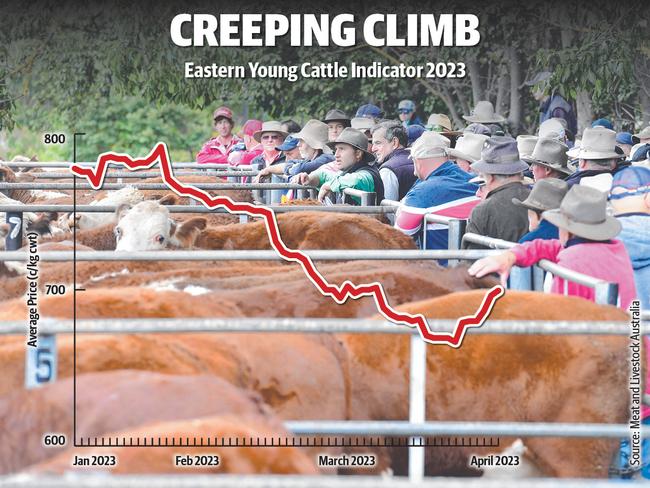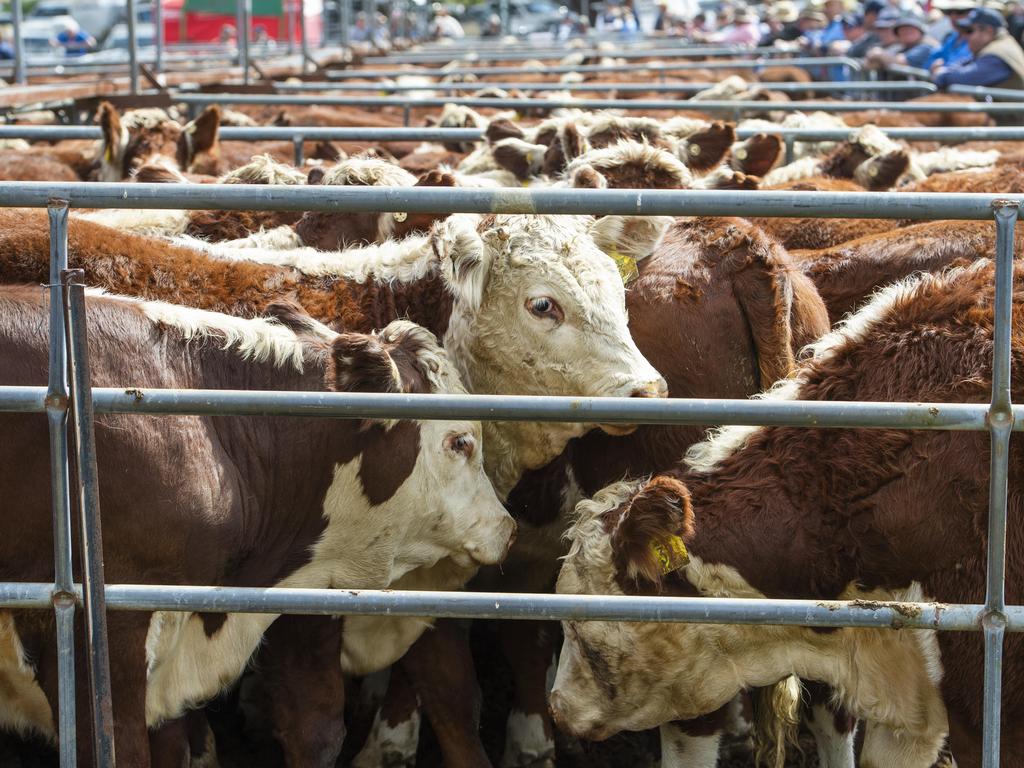Signs of life in the beef market
Rain has delivered a much-needed shot of confidence into cattle sales with hopes the market may have finally bottomed out.
Rain has delivered a much-needed shot of confidence into cattle sales with hopes the market may have finally bottomed out.
The benchmark Eastern Young Cattle Indicator has gained 20c/kg in the past week, and store markets have also shown lifts of up to $100 for steers.
They are the first signs that rates are on the improve after a lack of early autumn rain, talk of El Nino, and bigger prime sale numbers continued to force values down.
The EYCI hit its lowest level in late March when it dipped to 667c/kg but has risen slowly since then.

And there has been a rise in store markets too, which responded quickly to the change in confidence brought about by rain.
The big improver has been lighter steers which had been harder to sell as the market stalled, but were making more than 500c/kg in places last week.
Vendors like Colin Parker from Glencoe at Holbrook, NSW, were beneficaries of the rain-induced price rise, selling weaners last week at Wodonga.
But Mr Parker said while the rates were better than they had expected given recent sales, they were still a massive check on last year.
“The calves were 20kg heavier this year and we got $800 less,” Mr Parker said.
Paull and Scollard Nutrient agent Luke Deimel said he was hopeful the rain would not only improve store values but prime rates too.
“Once we get through the short kill weeks, with the public holidays, there is just the feeling that prices in the prime markets could lift too,” Mr Deimel said.
There is also promising news on the beef export front as Australia posts its best results for more than three years.
Episode 3 director Matt Dalgleish said Australian beef exports were the strongest result since December 2019 with 98,978 tonnes exported in March.
“Compared to the flows seen in February 2023 the current export volumes are nearly 41 per cent higher and it is the first time since June 2020 that monthly flows have managed to get above the five-year average pattern,” Mr Dalgleish said.
He said South Korea had imported a record amount of Australian beef - 19,933 tonnes - which was a 49 per cent increase on its take in February.
China had also lifted its imports of Australian beef by 59 per cent compared to February while the United States also increased its monthly imports by 48 per cent.




